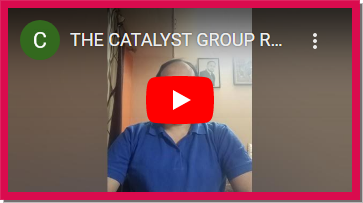FOUNDATiON 1.1(ME)
- Home
- Mechanical Engineering
- FOUNDATiON 1.1(ME)
FOUNDATiON 1.1(ME) Introduction

Course Highlight
-
Course TypeFull Pre + Mains
-
Validity810 Days
-
Class Start Date25-05-2019
-
Syllabus Completion Date20-06-2021
-
Course Validity Date12-08-2021
-
Class TypeVideo online
-
AuthorCatalyst
-
PriceRs. 38000
About the course
FOLLOWING TOPICS AND PATTERN WILL BE FOLLOWED UNDER THE COURSE:
IES Exam Pattern
| Prelims | Paper - I | Objective-type questions | General Studies and Engineering Aptitude |
Exam Duration of 2 hours | Total marks allocation is 200 |
| Paper - 2 | Objective-type questions | Engineering Discipline |
Exam Duration of 3 hours | Total marks allocation is 300 | |
| Mains | Paper - I | Conventional format | Engineering Discipline - I |
Exam Duration of 3 hours | Total marks allocation is 300 |
| Paper - 2 | Conventional format | Engineering Discipline - II |
Exam Duration of 3 hours | Total marks allocation is 300 |
TECHNICAL PART:
PAPER – I
1. Fluid Mechanics:
Basic Concepts and Properties of Fluids, Manometry, Fluid Statics, Buoyancy, Equations of Motion, Bernoulli’s equation and applications, Viscous flow of incompressible fluids, Laminar and Turbulent flows, Flow through pipes and head losses in pipes.
2. Thermodynamics and Heat transfer:
Thermodynamic systems and processes; properties of pure substance; Zeroth, First and Second Laws of Thermodynamics; Entropy, Irreversibility and availability; analysis of thermodynamic cycles related to energy conversion: Rankine, Otto, Diesel and Dual Cycles; ideal and real gases; compressibility factor; Gas mixtures.
Modes of heat transfer, Steady and unsteady heat conduction, Thermal resistance, Fins, Free and forced convection, Correlations for convective heat transfer, Radiative heat transfer – Radiation heat transfer co-efficient; boiling and condensation, Heat exchanger performance analysis
3. IC Engines, Refrigeration and Air conditioning:
SI and CI Engines, Engine Systems and Components, Performance characteristics and testing of IC Engines; Fuels; Emissions and Emission Control. Vapour compression refrigeration, Refrigerants and Working cycles, Compressors, Condensers, Evaporators and Expansion devices, Other types of refrigeration systems like Vapour Absorption, Vapour jet, thermo electric and Vortex tube refrigeration. Psychometric properties and processes, Comfort chart, Comfort and industrial air conditioning, Load calculations and Heat pumps.
4. Turbo Machinery:
Reciprocating and Rotary pumps, Pelton wheel, Kaplan and Francis Turbines, velocity diagrams, Impulse and Reaction principles, Steam and Gas Turbines, Theory of Jet Propulsion – Pulse jet and Ram Jet Engines, Reciprocating and Rotary Compressors – Theory and Applications
5. Power Plant Engineering:
Rankine and Brayton cycles with regeneration and reheat, Fuels and their properties, Flue gas analysis, Boilers, steam turbines and other power plant components like condensers, air ejectors, electrostatic precipitators and cooling towers – their theory and design, types and applications;
6. Renewable Sources of Energy:
Solar Radiation, Solar Thermal Energy collection - Flat Plate and focusing collectors their materials and performance. Solar Thermal Energy Storage, Applications – heating, cooling and Power Generation; Solar Photovoltaic Conversion; Harnessing of Wind Energy, Bio-mass and Tidal Energy – Methods and Applications, Working principles of Fuel Cells.
PAPER – II
7. Engineering Mechanics:
Analysis of System of Forces, Friction, Centroid and Centre of Gravity, Dynamics; Stresses and Strains-Compound Stresses and Strains, Bending Moment and Shear Force Diagrams, Theory of Bending Stresses- Slope and deflection-Torsion, Thin and thick Cylinders, Spheres.
8. Engineering Materials:
Basic Crystallography, Alloys and Phase diagrams, Heat Treatment, Ferrous and Non Ferrous Metals, Non metallic materials, Basics of Nano-materials, Mechanical Properties and Testing, Corrosion prevention and control
9. Mechanisms and Machines:
Types of Kinematics Pair, Mobility, Inversions, Kinematic Analysis, Velocity and Acceleration Analysis of Planar Mechanisms, CAMs with uniform acceleration and retardation, cycloidal motion, oscillating followers; Vibrations –Free and forced vibration of undamped and damped SDOF systems, Transmissibility Ratio, Vibration Isolation, Critical Speed of Shafts. Gears – Geometry of tooth profiles, Law of gearing, Involute profile, Interference, Helical, Spiral and Worm Gears, Gear Trains- Simple, compound and Epicyclic; Dynamic Analysis – Slider – crank mechanisms, turning moment computations, balancing of Revolving & Reciprocating masses, Gyroscopes –Effect of Gyroscopic couple on automobiles, ships and aircrafts, Governors.
10. Design of Machine Elements:
Design for static and dynamic loading; failure theories; fatigue strength and the S-N diagram; principles of the design of machine elements such as riveted, welded and bolted joints. Shafts, Spur gears, rolling and sliding contact bearings, Brakes and clutches, flywheels.
11. Manufacturing ,Industrial and Maintenance Engineering:
Metal casting-Metal forming, Metal Joining, Machining and machine tool operations, Limits, fits and tolerances, Metrology and inspection, computer Integrated manufacturing, FMS, Production planning and Control, Inventory control and operations research - CPM-PERT. Failure concepts and characteristics-Reliability, Failure analysis, Machine Vibration, Data acquisition, Fault Detection, Vibration Monitoring, Field Balancing of Rotors, Noise Monitoring, Wear and Debris Analysis, Signature Analysis, NDT Techniques in Condition Monitoring.
12. Mechatronics and Robotics:
Microprocessors and Microcontrollers: Architecture, programming, I/O, Computer interfacing, Programmable logic controller. Sensors and actuators, Piezoelectric accelerometer, Hall effect sensor, Optical Encoder, Resolver, Inductosyn, Pneumatic and Hydraulic actuators, stepper motor, Control Systems- Mathematical modeling of Physical systems, control signals, controllability and observability. Robotics, Robot Classification, Robot Specification, notation; Direct and Inverse Kinematics; Homogeneous Coordinates and Arm Equation of four Axis SCARA Robot
NON-TECHNICAL PAPER:-
1. CURRENT ISSUES OF NATIONAL AND INTERNATIONAL IMPORTANCE RELATING TO SOCIAL, ECONOMIC AND INDUSTRIAL DEVELOPMENT
2. ENGINEERING
APTITUDE COVERING LOGICAL REASONING AND ANALYTICAL ABILITY
3. ENGINEERING MATHEMATICS AND NUMERICAL ANALYSIS
4. GENERAL PRINCIPLES
OF DESIGN, DRAWING, IMPORTANCE OF SAFETY
5. STANDARDS AND QUALITY PRACTICES IN PRODUCTION, CONSTRUCTION, MAINTENANCE AND SERVICES
6.BASICS OF ENERGY AND ENVIRONMENT: CONSERVATION, ENVIRONMENTAL POLLUTION AND DEGRADATION, CLIMATE CHANGE, ENVIRONMENTAL IMPACT ASSESSMENT
7. BASICS OF PROJECT MANAGEMENT
8. BASICS OF MATERIAL SCIENCE AND ENGINEERING
9. INFORMATION AND COMMUNICATION
TECHNOLOGIES (ICT) BASED TOOLS AND THEIR APPLICATIONS IN ENGINEERING SUCH AS NETWORKING, E-GOVERNANCE AND TECHNOLOGY BASED
EDUCATION.
10. ETHICS AND VALUES IN ENGINEERING PROFESSION.
NOTE: THE PAPER IN GENERAL STUDIES AND ENGINEERING APTITUDE WILL INCLUDE KNOWLEDGE OF RELEVANT TOPICS AS MAY BE EXPECTED
FROM AN ENGINEERING GRADUATE, WITHOUT SPECIAL STUDY. QUESTIONS FROM ALL THE 10 TOPICS MENTIONED ABOVE SHALL BE SET.
In addition to the above full GATE AND SSC JE Syllabus will be covered
FOUNDATION BATCH 1.1 FEATURES
✅NEW FEATURES UNDER CATALYST 1.1 ONLINE CLASSES( ISO CERTIFIED INSTITUTE)
â—¾ï¸Over 2000 Video Lectures
â—¾ï¸Separate Question Practise Lectures including previous year and Expected questions
â—¾ï¸Live Doubt Sessions
â—¾ï¸Study Material including books and mind maps
â—¾ï¸Online Test series based on New pattern
â—¾ï¸Weekly Progress analysis
â—¾ï¸Group discussions
🔘Catalyst Group Is awarded as best Online coaching for Engineers in India,Join Us and secure your selection🔘
•This is an exclusively designed course for IES,GATE,SSC-JE (Technical and Nontechnical)-
Prelims and Mains both.This course includes everything.
•This course includes Video lectures which will be uploaded regularly at 8pm and will remain save in your profile till the date of exam.With daily video lectures you will be provided with pdf notes and practice questions also.
With theory and conceptual lectures,lectures for question practice will also be uploaded.
•Online Test series and regular doubt sessions will be conducted in which you will be directly in touch of the concerned faculty to clear your doubts personally.
•All subjects will be covered in depth so that you can understand and retain it for a long time.
•Conventional question practice sessions will also be there in which you will be provided with questions which you have to solve and send the picture back to us so that our faculty can personally check them and let you know where you are lacking.





